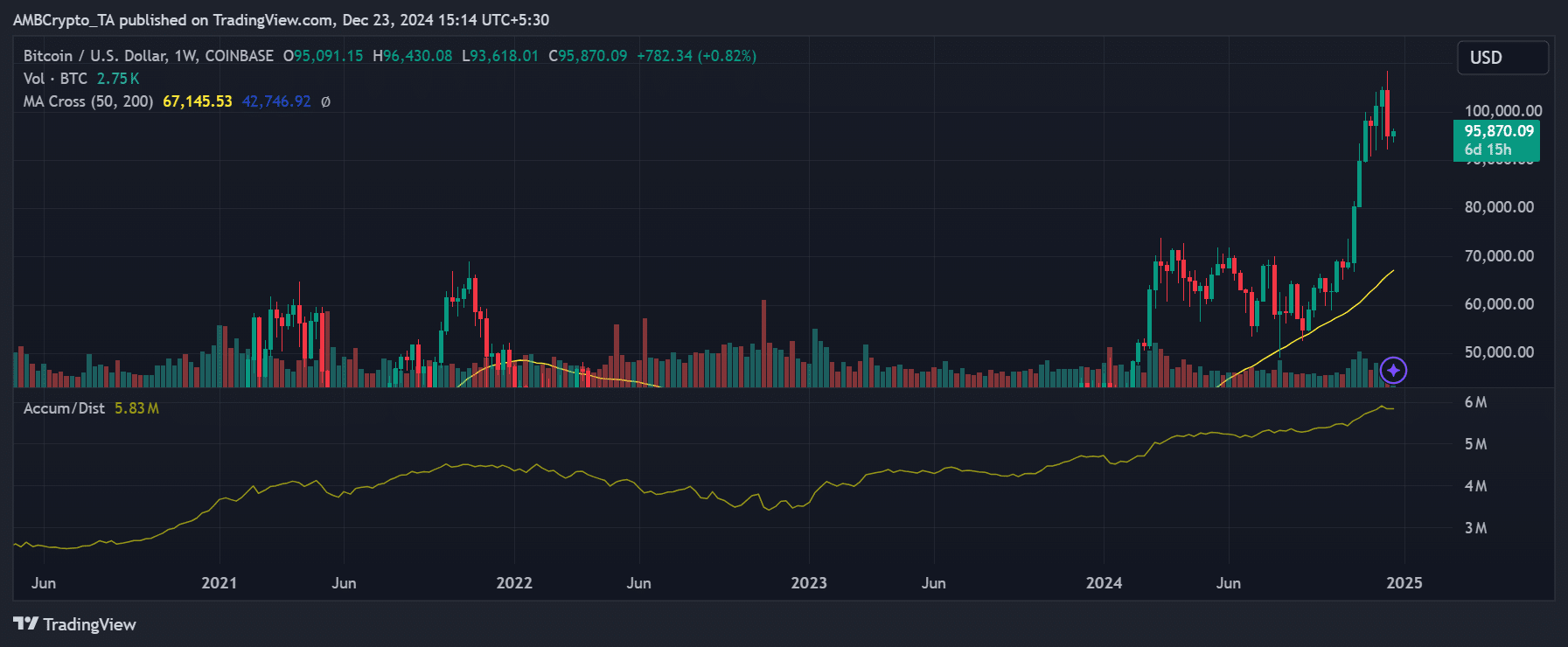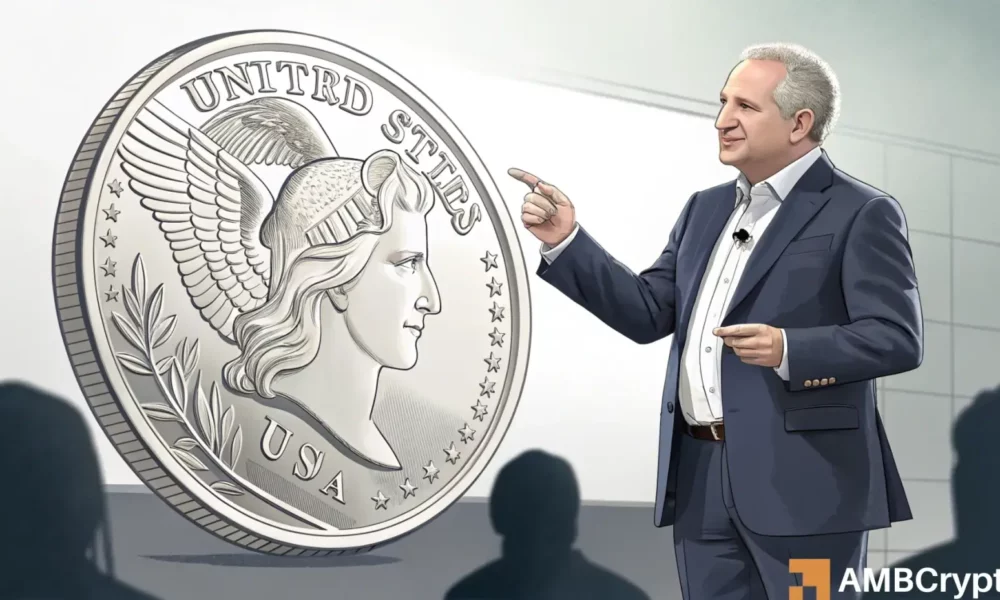- Peter Schiff has proposed the launch of USA Coin.
- This is consistent with his ongoing criticism of Bitcoin.
Peter Schiff, the outspoken critic of Bitcoin and a staunch supporter of gold, has taken aim at the cryptocurrency again. In a recent one post on social mediaSchiff proposed the idea of a US-issued digital currency called “USA Coin” as an alternative to Bitcoin.
He suggested that US coins could limit supply to 21 million, just like Bitcoin. However, it would have an “upgraded blockchain” to make it suitable for payments.
While Schiff’s skepticism is well documented, this new suggestion has reignited the debate over the viability of Bitcoin versus government-backed digital currencies.
Bitcoin vs. US Currency – Schiff’s Proposal
Schiff argues that Bitcoin’s scalability and use as a medium of exchange are its fundamental weaknesses. He claims that the US currency could overcome these challenges by improving the functionality of the blockchain and leveraging the trust of a government-issued currency.
However, this suggestion has drawn criticism from Bitcoin supporters who emphasize decentralization as Bitcoin’s core strength.
Bitcoin is designed to function without central control. The design ensures that no entity, government or otherwise, can manipulate its offerings or policies.
In contrast, U.S. coins issued by the U.S. government would be inherently centralized. This centralization could limit its appeal to those who value Bitcoin for its resistance to censorship and inflation.
BTC’s historical performance versus Schiff’s criticism
To understand Schiff’s continued skepticism, it is crucial to revisit his history of Bitcoin predictions. Over the years, Schiff has repeatedly predicted Bitcoin’s demise, but the cryptocurrency continues to defy his expectations.
A look at Bitcoin’s historical performance tells a different story.


Source: TradingView
Bitcoin has risen from being worth just a few cents in its early days to its current price of around $95,000. Despite periods of significant volatility, its long-term growth trajectory has made it one of the best-performing assets of the past decade.
Schiff’s predictions about Bitcoin’s collapse during its previous price surges (e.g. $1,000 in 2013 or $20,000 in 2017) have not come true, further fueling debates between his supporters and crypto advocates.
The implications of a government-issued digital currency
If the US were to create a digital currency like the US currency, it would likely function more like a central bank digital currency (CBDC) than a decentralized cryptocurrency.
CBDCs are designed to work within existing financial systems and potentially offer faster and more secure transactions. However, they lack the core features that make Bitcoin unique.
Schiff’s suggestion, while hypothetical, reflects a broader trend of governments exploring digital currencies to maintain control. Whether the U.S. currency can “make everyone rich,” as Schiff claims, remains highly speculative.
While his skepticism towards Bitcoin has yet to be confirmed, his comments draw attention to the growing interest in government-backed digital assets. Whether the US currency, or any other centralized digital asset, can compete with Bitcoin is a question that only time can answer.








